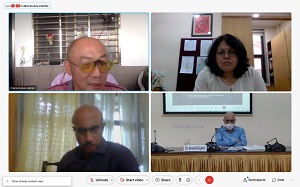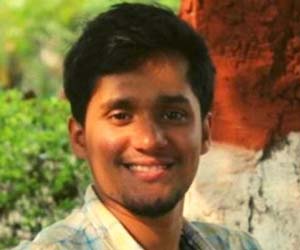The Vivekananda International Foundation organised a talk titled ‘Asia as Method: Towards Deimperialisation and its Afterlife’ by Professor Chen Kuan-Hsing on 20 June 2022. Prof. Chen is an academic from Taiwan, who specialises in inter-Asian cultural studies. He is one of the editors of the Inter-Asia Cultural Studies journal. He is the author of many academic works, including the book titled ‘Asia as Method: Toward Deimperialization’ (Duke University Press, 2010). This talk was intended to explore the afterlife of his book, which discussed thinking of Asia as a cultural category in the age of globalisation and de-imperialisation.
In the introductory remarks, Dr. Arvind Gupta, Director, VIF, mentioned the distinctive character of Asia, which is different from the West. He also highlighted the common historical experience of colonialism that Asia has. These commonalities, coupled with its strength of diversity need to be discussed, as we see Asia rising in prominence in the last few decades. However, he mentioned that there are also challenges to Asia’s cultural unity, for which he mentioned the authoritarian regime of China as an example. As an effort by VIF to contribute to Asia’s cultural development, he highlighted the SAMVAD initiative as a result of talks between the then Japanese Prime Minister, Śrī Shinzo Abe and Indian Prime Minister, Śrī Narendra Modi. The idea was to apply the fundamental ideas of Buddhism and Hinduism, two of Asia's most ancient traditions, to current problems endangering human civilisation.
The speaker highlighted the intellectual legacy of Asia against the European definitions, which emerged largely from enlightenment. This legacy is a result of Asia’s regional and diverse cultural heritage and the interactions between them. Prof. Chen highlighted the contemporary need for an inter Asian interaction and inter-referencing towards de-imperialisation of European concepts from Asian thinking. He said that even some of the fundamental concepts like Nation-states need to be ‘decolonised’, provided that it could be seen as a European Historical invention as well. Along with that, he highlighted the need for de-centering nation-state based global powers, and multiplying the regional formations. Imagining such a way for moving ahead would mean that the rise of Asia would not be for ‘dominating’ or ‘directing’ the world in the narrow sense, but to provide resources and platform for the third world to come together, to learn from each other to collectively envision the directions of the future world.
As a result, Asia could encourage mutual exchanges on all fronts, educational (students and faculties), creative-industrial, intellectual and publishing, so that modes of thoughts and knowledge productions can be more grounded. The speaker highlighted the prominence of India in building infrastructural capabilities for Asia, not just because of its economic stability, resources and vastness but also because of its geographical location.
Dr. Arvind Gupta concluded the session by saying that Asia should collectively build alternative narratives as a response to the dominant Western narratives. He also mentioned the ongoing discussions happening already in India, about how India could contribute to nurture the world’s thought and to strengthen the narrative, it is a must for the Asian societies to work together.







Post new comment